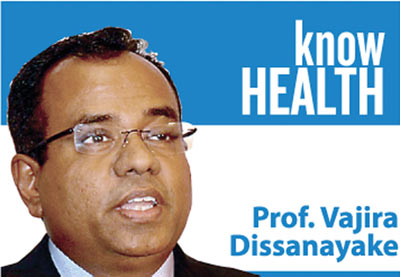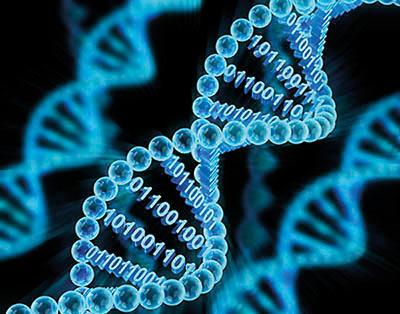Genomic Medicine – Next big thing in healthcare
View(s):A friend asked me recently “you have been writing about digital health, but what is the next big thing in health care?” The next big thing in health care is Genomic Medicine. Digital Health and Genomic Medicine are going hand in hand and revolutionising healthcare in the future. A few years ago, I decided to sequence my own genome. The genome is a person’s complete set of DNA, including all of its genes. The genome contains all the information needed to create and maintain that person. In humans, a copy of the entire genome – more than three billion DNA base pairs – is contained in all cells that have a nucleus.
 So what did I find? I found that I have a lot of genetic variations – some of them confirmed why I have certain physical and medical conditions; others informed me that I am at risk of developing certain medical conditions in the future; and some others were useful for me to understand medical conditions and habits of others in my family and extended family. Today, I help my patients do the same and help them understand about the medical conditions affecting them. In my lab, at the Human Genetics Unit of the Faculty of Medicine, University of Colombo, we perform genomic tests that have completely changed the way we approach patients.
So what did I find? I found that I have a lot of genetic variations – some of them confirmed why I have certain physical and medical conditions; others informed me that I am at risk of developing certain medical conditions in the future; and some others were useful for me to understand medical conditions and habits of others in my family and extended family. Today, I help my patients do the same and help them understand about the medical conditions affecting them. In my lab, at the Human Genetics Unit of the Faculty of Medicine, University of Colombo, we perform genomic tests that have completely changed the way we approach patients.
We are rapidly moving from traditional medicine to genomic medicine. What is Genomic Medicine? Genomic Medicine is the medical discipline that involves using genomic information about an individual as part of their clinical care (e.g. for diagnostic or therapeutic decision-making). Already, genomic medicine is making an impact in the fields of oncology, pharmacology, and rare and undiagnosed diseases. Let me illustrate this:
Cancer
A 25 year-old lady is diagnosed with breast cancer, soon after delivering her first baby. She comes to us and says that her mother died at the age of 30 years of colorectal cancer, and her aunt died of leukemia when she was aged only 15 years. She has an elder brother and a younger sister. The two of them are worried that they will develop cancer as well, and the young lady is worried that her baby would also develop cancer one day. They want to know whether ‘something bad is running down their family’.
Today, we are very much closer to answering questions like that than ever before. The answer is yes, we can help them find out. After discussing her concerns and getting her agreement, we perform a test. What is unique about this test is that in one go we can test all the genes – 94 in all – which are known to cause all types of cancer. In her case we found the genetic variant that caused her cancer and cancer in other members of her family. That information enables us to test anyone else in her family who wants to know whether they have the cancer causing variant (The test is only done on persons who can give consent for testing legally, i.e. those above the age of 18 years). With that knowledge an appropriate healthcare programme can be planned for each person in the family to prevent them developing the cancer and/or detecting cancer early if and when they develop it.
Genetic variations
 The next story is about a 9 month-old child. The child developed a fever and the doctors ordered a full blood count test. Blood was taken for the test. A few hours after blood was sent to the lab, the father gets a call from the lab asking him to come. When he arrives there they show him his baby’s blood. He is surprised. The blood is cream in colour, instead of red. The lab performs a test for lipids and finds that the baby’s cholesterol level is sky high – in fact over 2000 mg/dL – nearly 10 times the normal level. The baby is referred to us to find the cause. We perform a genetic test where all the genes that can cause any clinical condition are tested at once – nearly 4,384 genes in all. The baby’s genetic variation is found. In fact, in this case, the baby’s mother and father were tested and they were found to be carriers for a genetic variation which, when passed from both parents to the child, results in the child developing the condition.
The next story is about a 9 month-old child. The child developed a fever and the doctors ordered a full blood count test. Blood was taken for the test. A few hours after blood was sent to the lab, the father gets a call from the lab asking him to come. When he arrives there they show him his baby’s blood. He is surprised. The blood is cream in colour, instead of red. The lab performs a test for lipids and finds that the baby’s cholesterol level is sky high – in fact over 2000 mg/dL – nearly 10 times the normal level. The baby is referred to us to find the cause. We perform a genetic test where all the genes that can cause any clinical condition are tested at once – nearly 4,384 genes in all. The baby’s genetic variation is found. In fact, in this case, the baby’s mother and father were tested and they were found to be carriers for a genetic variation which, when passed from both parents to the child, results in the child developing the condition.
So we can not only confirm what caused the condition, we can also tell the family that since the parents are carrying the genetic variant, that there may be others like them in their families; and therefore to avoid close relatives marrying in the family because the practice in the community from which they come is to marry close relatives. This type of genetic testing where all the known genes are screened at once to find a cause for an illness in a cost effective and rapid manner was not possible before, and today as a result of their availability, we are able to help find answers for conditions that went undiagnosed before.
Personalised medication
My final story is one that applies to all of us. Do you know what can happen when you take medicine? There are four possible outcomes: First, you may be cured of the condition that you are suffering from and you will not have any adverse reactions to the medicine. Second, you may be cured of the condition, but you will develop adverse reactions. Third, you may not be cured, but you will also not have any adverse reactions. Finally, you will not be cured and you will develop adverse reactions.
In the US, it is estimated that 100,000 people die of adverse reactions to medicines every year. In Europe, it is estimated that one in 10 emergency hospital admissions are due to overdose of medicines. In the past it was not possible to predict what would happen to a patient when a medicine is given. Today however, the situation has changed; we can test a person and make predictions about reactions to medicine, so much so that in the future every patient will carry a report stating which drugs to prescribe to them when they are diagnosed with any particular condition. The era of one drug for all patients is changing; it will be personalised medicine prescribed to individuals based on their genetic profile. Already we are able to test patients and tell them what medicine will work for them and what won’t. Wouldn’t you want to know that if you are on an expensive medicine for a long period of time?
Ten years ago, this was the future that people were predicting, but the future is here with us today, and we are practicing genomic medicine. At the beginning of this article, I said that genomic medicine and digital health go together. That is because the entire genome of an individual is so large – three billion ‘letters’ long. The only way one can handle such large amounts of information and manipulate them is using computers, and if we are to use genomic information effectively we have to integrate that information with medical records, that can only be done if medical records are also digitalised. You will hear more and more about genomic medicine. My prediction is that all readers of this article will have their genome sequenced one day.
(The writer is the President, Health Informatics Society of Sri Lanka; the Past President, Sri Lanka Medical Association; the President-Elect, Commonwealth
Medical Association; and a Fellow of the National Academy of Sciences of
Sri Lanka. He can be contacted via
vajirahwd@hotmail.com).


